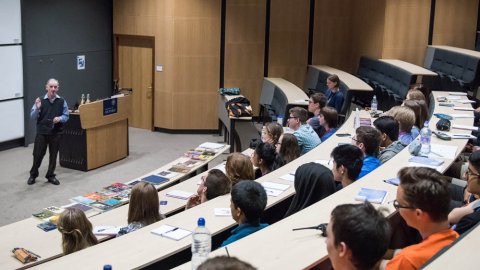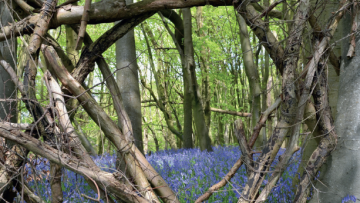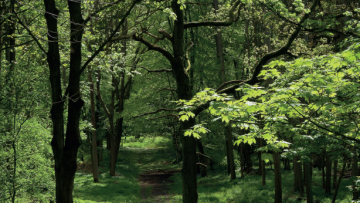11:00
Goursat rank 4 rigid local systems
Abstract
In the late 1880's Goursat investigated what we now call rigid local systems, classically described as linear differential equations without accessory parameters. In this talk I will discuss some arithmetic and geometric aspects of certain particular cases of Goursat's in rank four. For example, I will discuss what are likely to be all cases where the monodromy group is finite. This is joint work with Danylo Radchenko.
Oxford mathematician Sir Andrew Wiles, renowned for his proof of Fermat’s Last Theorem, has been appointed by Her Majesty the Queen to be Oxford’s first Regius Professor of Mathematics.
The Regius Professorship – a rare, sovereign-granted title – was granted to Oxford’s Mathematical Institute as part of the Queen’s 90th birthday celebrations. It is the first Regius Professorship awarded to Oxford since 1842.
12:45
(0,2) dualities and 4-simplices
Abstract
3d N=2 Chern-Simons-matter theories have a large variety of boundary conditions that preserve 2d N=(0,2) supersymmetry, and support chiral algebras. I'll discuss some examples of how the chiral algebras transform across dualities. I'll then explain how to construct duality interfaces in 3d N=2 theories, and relate dualities *of* duality interfaces to "Pachner moves" in triangulations of 4-manifolds. Based on recent and upcoming work with K. Costello, D. Gaiotto, and N. Paquette.
A new variational principle with applications in partial differential equations and Analysis
Abstract
In this talk, we shall provide a comprehensive variational principle that allows one to apply critical point theory on closed proper subsets of a given Banach space and yet, to obtain critical points with respect to the whole space.
This variational principle has many applications in partial differential equations while unifies and generalizes several results in nonlinear Analysis such as the fixed point theory, critical point theory on convex sets and the principle of symmetric criticality.
If you are ever in the centre of Oxford and are getting tired of the endless beautiful buildings, then make your way to Wytham Woods. Covering 1000 acres of ancient and beautiful woodland 3 miles NW of Oxford, Wytham is exceptionally rich in flora and fauna, with over 500 species of plants, a wealth of woodland habitats, and 800 species of butterflies and moths. And it is so wonderfully peaceful.






